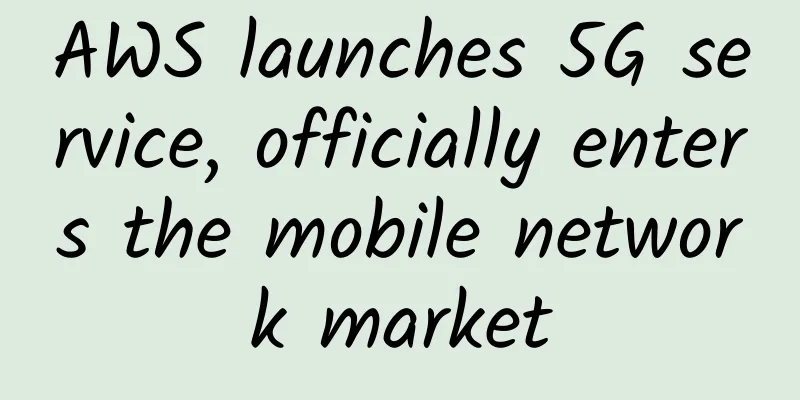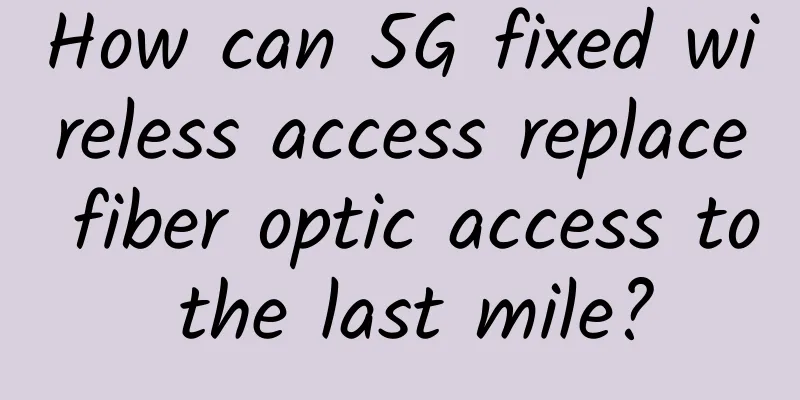AWS launches 5G service, officially enters the mobile network market

|
Amazon Web Services (AWS) has launched the AWS Private 5G service, officially entering the private mobile network market. In fact, the name Private 5G is a bit exaggerated. AWS Chief Evangelist Jeff Barr clarified in the announcement that this service "currently only supports 4G LTE (Long Term Evolution), but will definitely support 5G in the future." So as long as we put aside the term 5G, this new AWS service is worth our serious attention. This service is directly aimed at enterprise customers, allowing users to deploy their own private mobile network "within a few days". Friends who are used to managed services and click-and-use may not be used to this experience that requires a deployment cycle. Private 5G has a wide coverage area, both indoors and outdoors, and can work with other service solutions such as AWS Identity and Access Management (IAM). Admittedly, AWS is a little late to the private 5G party. Other vendors, such as FreedomFi, have long provided plug-and-play CBRS (Citizens Broadband Radio Service) gateways, small cells, and SIM cards based on open standards/open source software. AWS is an important alternative to Wi-Fi networks. This service does not require application to telecom operators for the construction of more signal towers. It can easily communicate with actuators/sensors in smart factories and can also greatly improve the network connection effect of portable devices. Although it is highly scalable, the entire facility installation process still has certain technical barriers. AWS explained, "The CBRS band in the United States requires installation by technicians with radio professional certification (CPI)." They are planning to establish a corresponding business ecosystem to help more customers easily use this network kit. Although users can order their own kit (which includes a wireless transmitter that needs to be connected to both power and the Internet, as well as ten SIM cards), installers must enter the base station's latitude, longitude, and altitude parameters themselves. In addition, AWS's new technology services are generally expensive. Although there is no need to pay any upfront costs or per-device usage fees, users still need to bear the service cost of $10 per hour, and the contract period is at least 60 days. Private 5G services also include many hardware restrictions. For example, each network can only support one wireless transmission base station, which can provide a maximum data throughput of 150 Mbps and can be shared by up to 100 SIM cards. AWS plans to further increase the number of SIM cards and wireless transmission base stations in the future. The service also has geographical restrictions. Currently, Private 5G service only supports two regions: the eastern United States (Ohio and Northern Virginia) and the western United States (Oregon). It will be opened to regions outside the United States in the future. For expected markets, please refer to the "the future" folder in the description. |
<<: The entire network discloses IP locations, and your location is exposed
>>: How to accelerate enterprise innovation and transformation with the help of Wi-Fi 6?
Recommend
Why restarting the router frequently makes WiFi faster
Using WiFi to surf the Internet has become an ind...
A400 20% off for the school season, Los Angeles CN2 GIA/9929/4837 and other routes starting from 20 yuan/month
A400 Interconnect recently released a back-to-sch...
5G helps: Five future development trends of smart transportation
According to relevant research reports, the globa...
Seamless broadband experience: Unleashing the power of network services and infrastructure
Importance of Network Services Network services p...
VMISS adds 30% off on Tokyo data center in Japan, and monthly VPS in Los Angeles CN2 GIA/AS9929/Hong Kong/Korea/Japan starts from 3.5 Canadian dollars
VMISS recently added a second node in Japan, Toky...
Three steps to protect your home network
Today, the typical structure of an internet conne...
Experience the Serverless application programming model in cloud native scenarios
background Alibaba Cloud Serverless Kubernetes (A...
Two questions to easily understand Riverbed's 2018 and 2019
[51CTO.com original article] Recently, Riverbed h...
DediPath Summer Promotion: Los Angeles E3 servers start at $39 per month, New York servers start at $49 per month
DediPath has released its latest summer promotion...
China Telecom Tianyi Cloud 3.0 helps Heizi Technology build Zhongshan intelligent cloud platform
In May 2015, the state released the "Made in...
Cisco's Scott Harrell: A new era of networking has arrived. Cisco empowers enterprises to innovate and transform
[51CTO.com original article] On the eve of the 20...
spinservers: $99/month 1Gbps unlimited traffic - E3-1280v5, 32G memory, 1T NVMe hard drive, Dallas data center
Last week we shared information about spinservers...
Cloud-led security makes safety predictable. Huawei takes you to a safe world where people feel safe.
【51CTO.com original article】 Just last week, the ...
Many operators have been arrested! Please stay away from these common illegal operations.
Starting from the second half of 2020, the nation...
Recommend an information collection tool written in Python
introduce Argus is a Python-based information col...








![[Black Friday] Justhost has a 30% discount for a limited time, 22 data centers in Russia, the United States, Singapore, etc. are available](/upload/images/67cabce3ceaff.webp)
